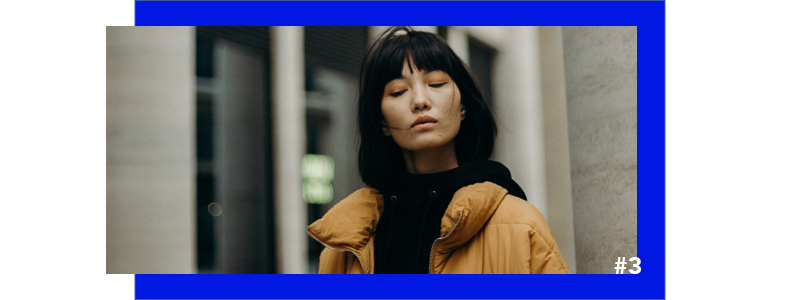Today, fashion is moving more rapidly than ever. We live in a special era in which opportunities to change the fashion industry are countless. That doesn’t come as a total surprise, since change is needed tremendously. Besides the industry-changes that need to be made, there are many things you can do yourself. In this series, therefore, we guide you through the most common ways to buy more thoughtfully, sustainably and ethically. After all, your search for sustainable fashion should be fun. Let’s kick-ff with a not so new phenomenon: ethically sourced materials.
Cover photo: © Pexels
Sustainable fashion
Sustainable fashion has become more than the next hype. Big retailers, high fashion labels and many customers have reached the point on which they acknowledge the huge influence of the fashion industry on our planet.
More and more sustainable concepts pop-up. Take Ikigai Labels, for example: a melting pot of sustainable brands of all kind. You’ll find fancy made to order items, as well as more accessible garments (for every budget). We recently interviewed Helene Oudman, the creative mind behind this concept. According to her, “there’s a lot to win in the fashion industry.”
However, fast fashion companies still offer low priced items while keeping up with the latest trends. Zara adds new items every week and adidas’s NEO line is designed, produced and delivered to stores within only one month. These types of actions are typical for the industry.
Therefore it’s about time to be more aware of your own shopping behavior. Let us guide you through it.
https://www.instagram.com/p/B6nz1ihnlTC/
Ethically sourced
Do you value craftsmanship and do you care about whether your clothes are made under ethical circumstances? Many (big) retailers have started caring more about where their clothes are made, but there’s still a long way to go.
Mhairi McClymont from Good on You has worked out several questions you should ask a company to discover whether their clothes are developed under the right circumstances.
First, McClymont mentions, it’s important that the people manufacturing our clothes are safe. Safety isn’t always guaranteed, as we’ve witnessed when a fire hit a factory in Bangladesh a couple of years ago. As a consequence, the Bangladesh Fire and Safety Accord was developed. Always check whether the company you buy from has joint this pact.
Second, empowerment is important. While we’re ‘enjoying’ (or even complain about) our 8 hour work day, some people still have to fight for it. Therefore, ask your favorite brand which steps they’re currently undertaking to empower their employees.
https://www.instagram.com/p/B63J2_HJjSl/
Third, it’s important to know whether the garments workers can afford a living. While earning $200 might sound like a little to you, it maybe is a lot to someone in another country. However, it doesn’t have to be. Try to find out whether this is the case for your favorite brands.
Fourth, check whether the employees are ‘free’. Might sound a little crazy, but not all workers are. In 2014, The Work Free Foundation estimated that over 40 million people around the world were forced to work, which is a form of modern slavery.
Luckily, times are changing and so is the fashion industry. Check out the brands below to make sure you’re buying the ethical stuff.
Brands
It’s about time to embrace designers and fashion brands with more purpose-driven ideas towards sustainable fashion. In the future this may mean that our current idea of Fashion Week will change dramatically. To keep it a little closer to home, let’s start with some fashion brands that are good choices when you’d like to shop more thoughtful.
1. Mara Hoffman
Respect towards employees and craftsmanship is one of the most important values at Mara Hoffman’s company. On top of this, they strive towards minimal energy consumption and waste.
2. Cawley
Cawley creates timeless garments and accessories that transition effortlessly into every season. They solely work with local manufacturers and all items are made in London.
https://www.instagram.com/p/B6qFy9OgCL-/
3. Stella McCartney
Stella McCartney cares about animal wellbeing like no other. Furthermore, she’s a great advocate of creating new production processes, which, in turn, provide new job opportunities.
4. Lark & Berry
Probably you’ve heard of lab grown diamonds. You’ve probably also noticed how big diamond retailers try to counteract them. After watching Netflix’s Explained on lab diamonds, it became even more clear that lab grown diamonds are superior to their earth-made counterparts. Lark and Berry acknowledge this as well and therefore they solely use lab grown ones.
https://www.instagram.com/p/B5tjc4-AWQD/
You will also like: Why recycled plastic won’t rescue our planet










